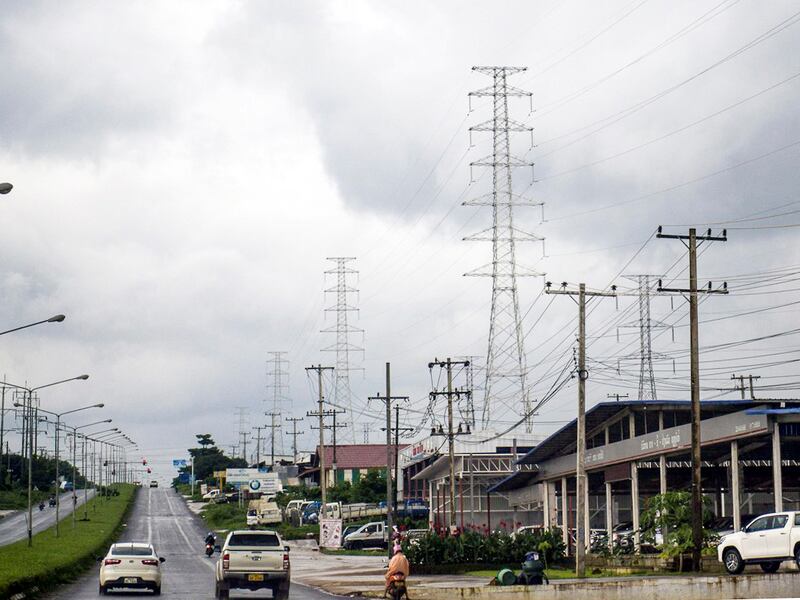Authorities in southwestern Laos' Champassak province are forcing migrants from other parts of the country to hand over “staying fees,” according to residents who say they are a form of exploitation by corrupt officials.
Last week, residents of other provinces living in Champassak took to social media to complain that local authorities are making them pay nearly 55,000 kip (US$2.50) per month — a substantial amount in a nation in the midst of an economic downturn with a minimum wage of 1.6 million kip (US$73) per month — to live in their villages.
When asked about the payments, a village-level official who, like others interviewed for this report, spoke on condition of anonymity due to security concerns, told RFA Lao that such “staying fees” are “part of local rules to ensure authorities can provide security” in their communities.
But a migrant from another province living in Champassak, who also declined to be named, told RFA that “there should be no staying fee collection” for Lao nationals, suggesting that “authorities just want to make some extra money” to pad their salaries.
“If they collect a staying fee from foreigners or visitors from other countries, that is something justified,” he said. “What I’ve observed is that authorities try to collect as much as they can for this fee ... but residents can only afford to pay around US$2.50 per month.”

The migrant said that while authorities have no right to collect such high fees, people end up paying them because they want to avoid trouble and have no way to lodge a formal complaint.
“Residents can’t say anything and simply have to pay the fee as ordered,” he said.
An official from Champassak’s Pakse district told RFA that she believes public frustration with the staying fees is due to some corrupt officials asking for more than what local laws allow.
According to the law, she said, officials can only collect staying fees of 40,000 kip (US$1.80) per month for up to three consecutive months, and are required to provide documentation certifying temporary residency.
RELATED STORIES
Over 2 dozen officials disciplined for corruption in southern Laos
Lao Loggers Backed by Corrupt Officials Pillaged Champassak Forests in July
Lao blogger who criticized failed response to flood freed from prison
But government salaries start at 1.85 million kip (US$84.50) per month, or only slightly above minimum wage, so many officials are looking for ways to supplement their pay, she said.
“Not all officials perform their duties as prescribed in the policy,” she said. “It’s because their salaries are so low — that’s why they want to earn extra money.“
The official said that provincial police “are investigating this issue,” as it falls under their jurisdiction.
“If authorities are found to have abused their power to take money from residents, they will ... face punishment according to the law,” she added.
Village-level officials in other provinces told RFA that they do not charge Lao migrants a staying fee to reside in their communities.
“There is no such policy for us to do so,” said one official from a village in Savannakhet province. “We only collect money from businesses in the amount they are comfortable to donate when we need funds to build roads, schools, and small hospitals.”
Attempts by local officials to collect staying fees from Lao migrants have been shut down by central authorities in the past.
In 2018, authorities in some villages in Vientiane’s Sikhottabong district required residents from other provinces to pay 55,000 kip per family or 48,000 kip (US$2.20) per individual for three months to live there.
Shortly after the staying fees were announced, the central government ordered local authorities to end the policy.
Translated by Phouvong. Edited by Joshua Lipes and Malcolm Foster.
